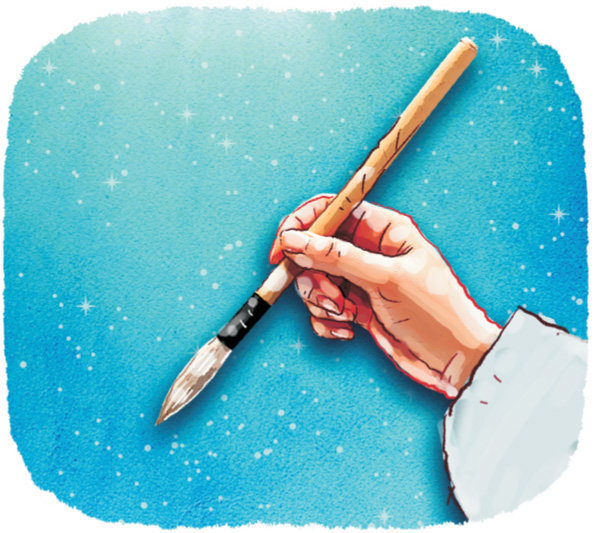Master calligrapher Wang Xizhi
Master calligrapher Wang Xizhi
Posted March. 04, 2022 08:09,
Updated March. 04, 2022 08:09

Wang Youjun is another name of Wang Xizhi, a master of calligraphy described in “Chunhyangjeon” where Lee Mong-ryong dazzles in a state examination by following a calligraphic mode of Zhao Mengfu with Wang Xizhi-styled strokes. Wang Youjun was derived from his title General of the Right Army. He was known to love geese. Some argue that he regarded their white and clean feathers as a symbol of lofty scholars while others say that Wang’s calligraphic skills were inspired by body movements of geese. However, no one is clearly sure of why he loved geese.
Wang visited an ascetic to buy a goose as he was rumored to raise geese. When the guru proposed to give Wang a goose free of charge if he writes “Tao Te Ching,” he accepted his offer. The poet imagines Wang getting so excited about earning a goose that he even “forgets to say goodbye to the master” and just leaves.
Even “The Book of Jin,” an official Chinese historical text, portrays Wang’s love of geese. As Li Bo’s poetry was published, Wang’s affection toward geese became widely known. The poet seems fascinated by the genius Wang given that he writes that his handwriting is characterized by a gifted level of sophistication and delicacy.”
Legend has it that ink-colored pools existed where Wang lived and practiced calligraphy so hard that pools turned into black because his inkstone and brushes were washed too often. Liu Yanshi, one of the poets of the Tang Dynasty, exaggerates several years later, “Ponds still dyed with ink black in different hues from a normal spring water.”







